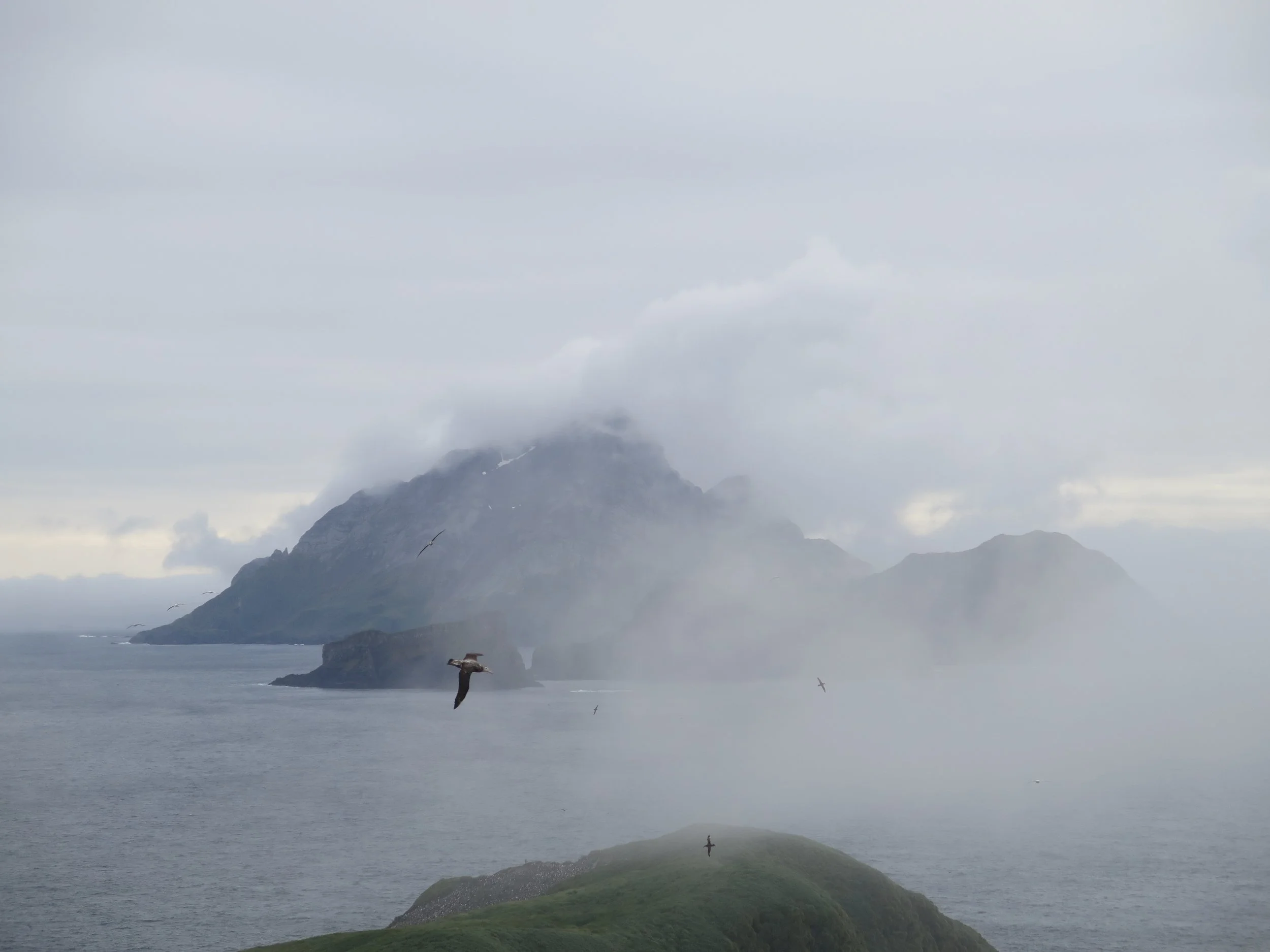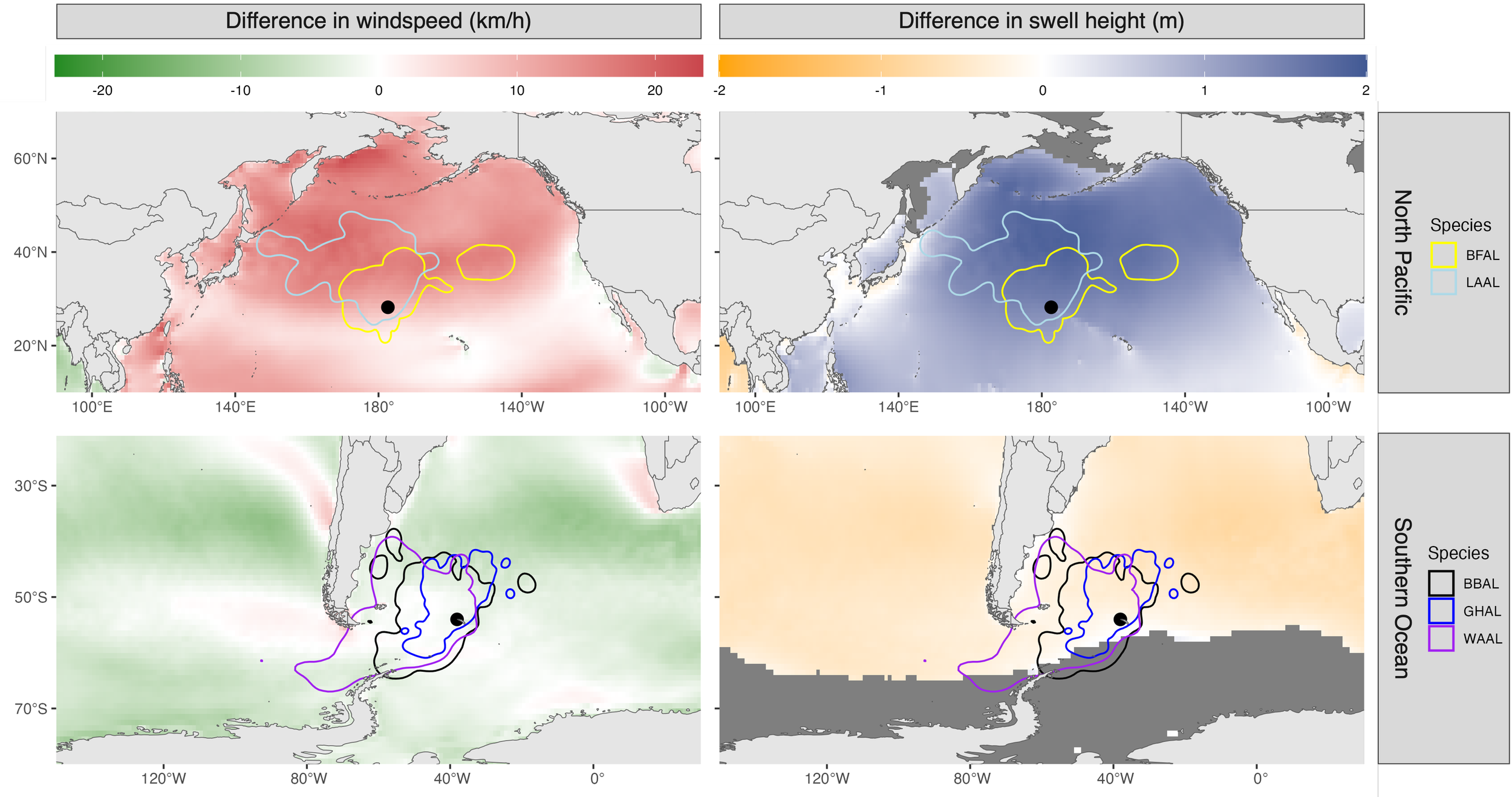
Albatross Flight Dynamics
Aug 2022 – Sep 2024
Research Assistant @ Stony Brook University
Albatrosses embark on multi-day foraging trips in the open ocean, using winds and waves to conserve energy expenditure by fueling soaring flight. Fitted with an accelerometer (tri-axial acceleration sensor) and a GPS, we can analyze albatross flight dynamics relative to local wind and wave conditions.
I developed automated data and signal processing methods to analyze tens of thousands of sensor data hours, plus environmental data. As a result, I conducted a comparative study of the flight dynamics of five albatross species across two ocean basins (manuscript currently under review by Movement Ecology).
I wrote my master’s thesis on this project, titled: Differential Impacts of Winds and Waves on Albatross Energetics in Two Ocean Basins. I had the opportunity to present my work the 7th International Albatross and Petrel Conference (IAPC7) held in Ensenada, Mexico in May 2024.
I also worked on related projects, capturing and fitting gulls with sensors, and analyzing the ECG signals of albatrosses in relation to flight dynamics and environmental variables.
A black-footed albatross’ flight track with respect to the local wind field.
for more info…
Stay tuned for future updates and publications. This work is currently in the peer-review process.
For now, here is a YouTube video from PBS about soaring albatrosses:





